Award-winning Ghana program leader views diversity and inclusion in an African context
February 22nd, 2023 | Africa, SIT Study Abroad
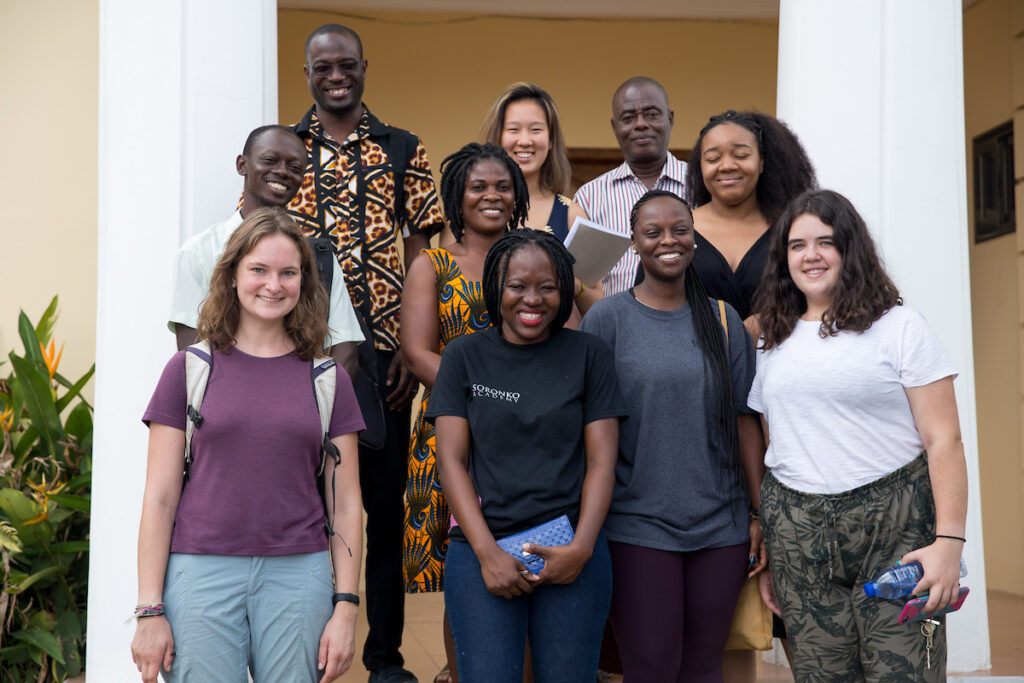
Photographs by Paul Ninson
As SIT’s academic director in Ghana, Dr. Kwabena Opoku-Agyemang is responsible for two of SIT’s immersive study abroad programs—Globalization, Cultural Legacies, and Afro-Chic and Hip-Hop, Resilience, and Black Struggle, which include both U.S. and Ghanaian students. He also hosts SIT custom programs that bring groups of students from a single institution to study in Ghana.
Last fall, Opoku-Agyemang was named the recipient of Diversity Abroad’s 2022 Excellence in Diversity & Inclusion in International Education for Inclusive Excellence in Teaching. The award spotlights “strategies that tackle underlying inequities in global education and strive to advance diversity, equity, and inclusion in the field of global education.”
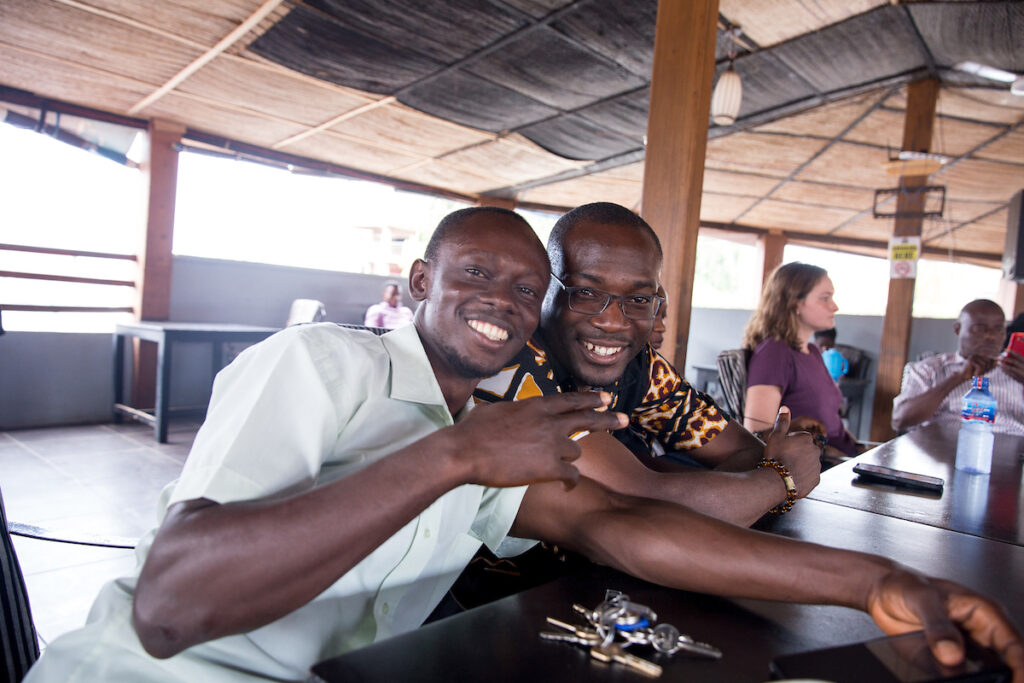
Opoku-Agyemang has directed SIT programs in Ghana since 2018, but his history with SIT goes back much farther. His mother, Dr. Jane Naana Opoku-Agyemang, is a widely respected Ghanaian academic and politician who served for four years as minister of education. Among an array of prestigious roles at Ghana institutions, she was also academic director of the SIT program History and Cultures of the African Diaspora, which meant that her son got to know U.S. students early and often.
We reached out to Kwabena Opoku-Agyemang to talk about his recent award, his interest in international education, and how he supports diversity and inclusion.
Can you tell us how you approach diversity and inclusion on your programs?
I approach it from an African context. We don’t try to import America into Ghana. Students are coming into a cultural context that is different from what they are used to. There is an exchange of ideas—students and stakeholders are encouraged to ask questions. I try to create an environment where students are very free to ask anything they think of, even if it might come across as offensive. Our baseline is: Nothing out of malice. So they can ask and say pretty much anything. That helps with inclusion as they are being honest about their perspectives.
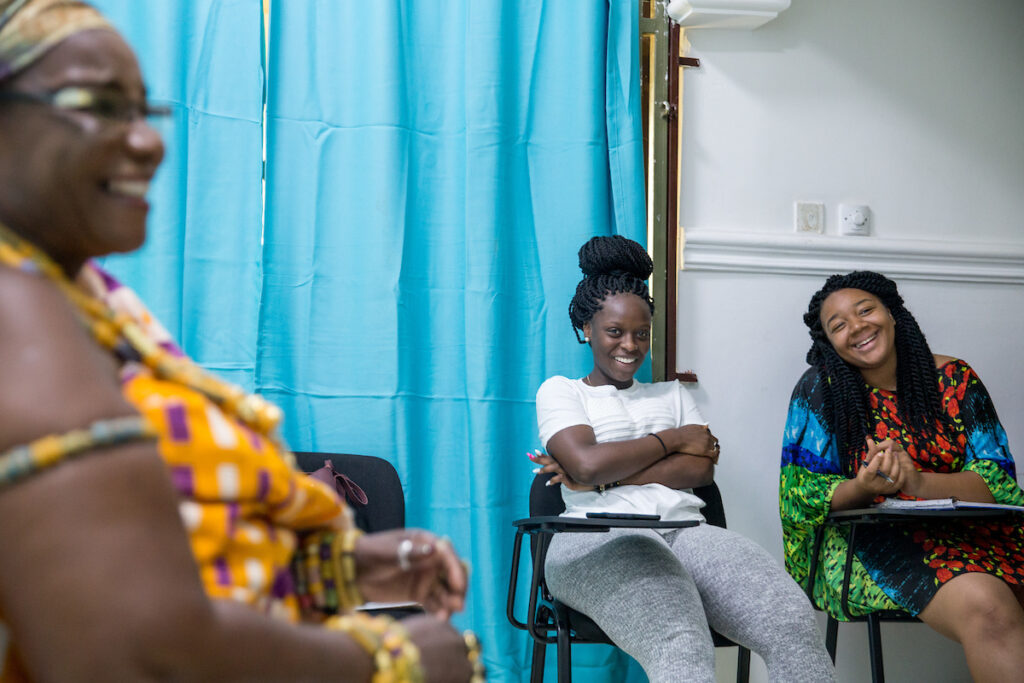
What are some examples of commons preconceptions that you encounter among your students?
Ghanaian students are usually shocked to find U.S. students who are working while in school because in their minds America is a rich place and everyone has money. So, they are surprised when they find a student who works as a waiter or a construction worker. A U.S. student might express that our modes of transportation are not acceptable. We don’t avoid those moments. They are ways of learning.
You have been working with and getting to know U.S. students for many years. What changes have you seen among U.S. students?
The most remarkable thing among our cohorts is that we’re seeing a lot of first-generation African students coming to Ghana. In a recent cohort of eight students, six had parents who come from African countries. For the past two cohorts we have had all black students. The semester before that was 90 percent black students. So those demographics are changing. These students tend to not see themselves as African, so we process the different black identities—African American, African Caribbean, African.
What about changes within U.S. higher education?
Academic trends are a reflection of a larger context. In America, there is a lot of cutting of funding to education. They use money for wars and other things, and not education. And when education does get funded it often goes to the football coach and not the professors. So, humanities and social sciences bear the brunt.
The thing about education policy and trends is that you don’t see the impact until it’s too late. Anytime you take a decision in education its implications are long-term. In the future you’ll see graduates who don’t know much outside the space that they are in. And when you don’t know things outside your space, you’re going to be ignorant of the world around you.
Students today are very focused on the job they can get after college. The irony is that African studies, social sciences—these build critical thinking, which is what you need to get a job.
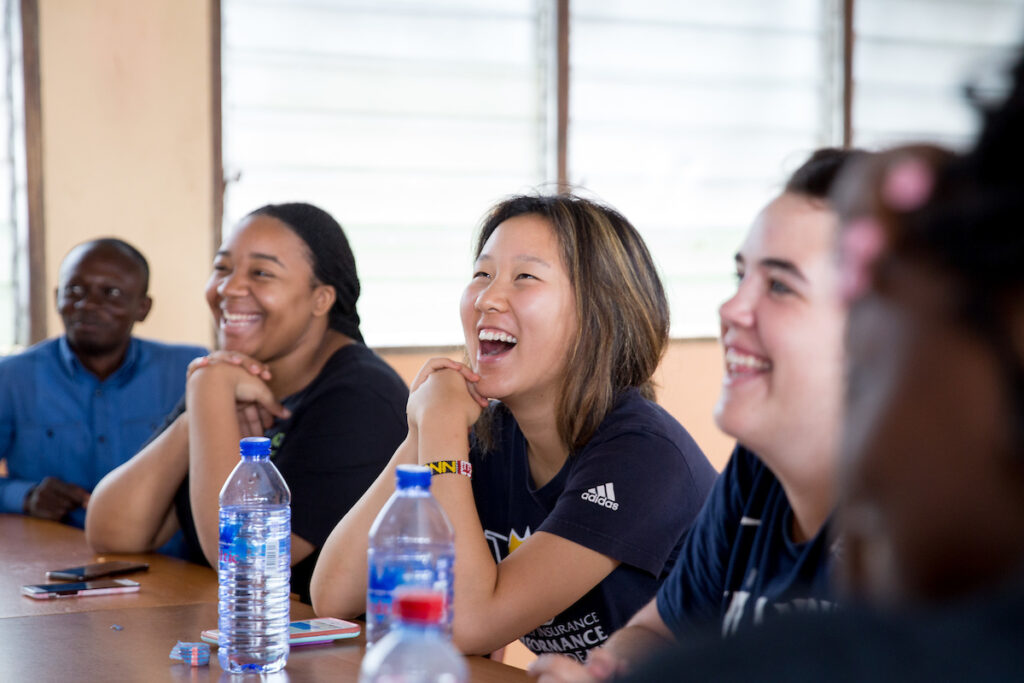
What drew you, as an educator, to global education and study abroad, and what excites you most about your programs in Ghana?
I have always been interested in different cultures and have traveled a lot in my life. I was in Cape Coast, Athens, and Accra for tertiary education, for my undergrad, and my MA. I went to Germany for 10 months and learned a lot about different cultures, races, and people. I went to Senegal for three months and when I as in the U.S. for another MA and a PhD I traveled around a bit, which showed me how different America was. How Georgia is different than West Virginia or Washington state. All of this piqued my interest in intercultural learning.
I love the experiential nature of global education and how the students learn about themselves as the semester progresses. They come in with preconceived notions. Some who are African have a fair idea of the continent, but they realize even though they have a Ghanaian or Senegalese background, they might not fit as they expected. We offer very hands-on experiences that allow them to process these experiences and adapt in ways that make sense to them.
Students are partners within this learning exchange in which everybody is learning and giving, respectful of one another.
When you go to another country where certain things are not available to you—even things like the internet—these become moments to learn about the world around you. So, when you go to a place like an African country it’s useful to go through a program like SIT, a program with a structure.
Our programs are famous for being based in experiential learning. From when students get off the plane to when they get back on the plane, everything is part of their experience. So, while it’s important to consider that the whole environment has to be seen as a place where they can be safe to a large extent, it’s also important to think about other stakeholders. If you privilege the students and leave others out, students are seen to be different from everybody else. Students are partners within this learning exchange in which everybody is learning and giving, respectful of one another. And we see the field as an inclusive space regardless of whether it’s a site visit, a lecture, or a homestay.
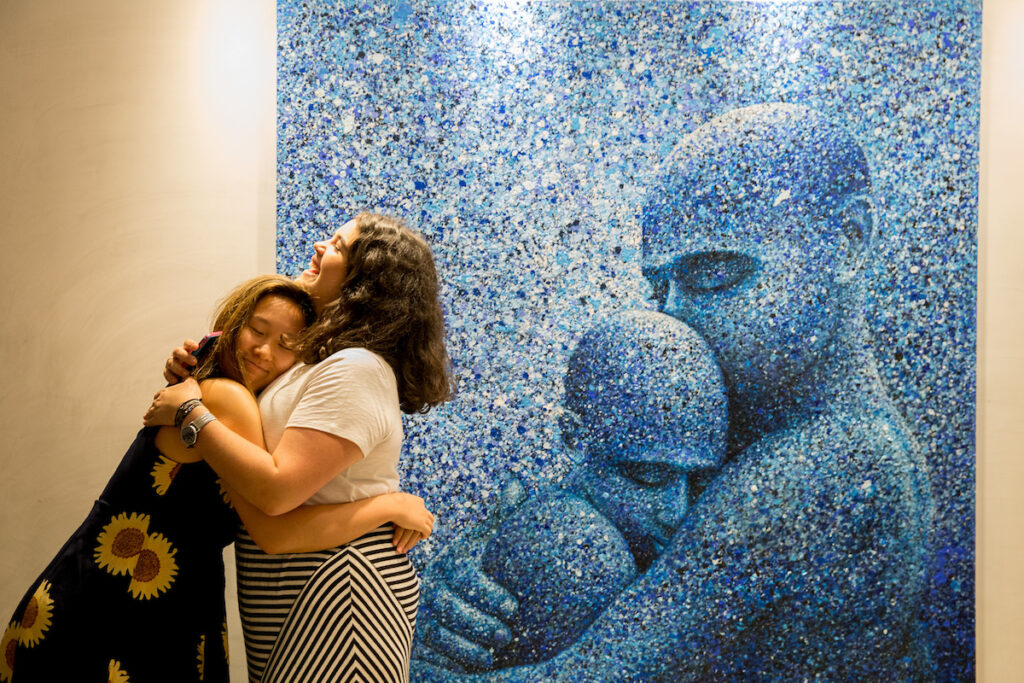
How do you do that?
We try to identify and curate culturally appropriate safe spaces, but if the whole country is going to be part of their learning experience, inclusive spaces should not necessarily be confined to particular areas. We try to create an experience in which students can feel confident, can be themselves and engage with experiences that can help them become better people, both academically and personally.
Students stay in homestays that have received training, and that serves as a bridge between the country and the program. In a country like Ghana, a lot of the issues that an American student would take on a serious level might not necessarily be issues a Ghanaian would care about. That doesn’t necessarily mean the student should struggle because the things they take seriously are different. Our homestay families understand that students might have certain issues that bother them, but our families engage in a way that the student learns about Ghanaian culture.
Ghana has certain laws and cultural norms around LGBTQI+ people. How do you create safe spaces for those students?
Legislation left from the colonial period has become part of the cultural imagination about LGBTQ people that can be offensive to those who identify as such. But there is also a huge LGBTQ subculture in Ghana. So, we have students who are LGBTQ who find their community. We help to create safe spaces for students to find communities where they are free to express themselves in ways that make sense to them.
One student recently did an Independent Study Project on how Ghanaian queer folks imagine a sense of belonging. Last semester we looked at how Ghanaian queer artists think about the future and how religion affects Ghanaian LGBTQ folks and their sense of nationalism.
We help to create safe spaces for students to find communities where they are free to express themselves in ways that make sense to them.
We also train our staff regularly about how to address some of these issues. Our programs spend about a month going around the country, including to places that are quite rural. We ensure students know how they can respect these spaces, and we try to help them understand what it means to be culturally appropriate in this space.
We have allies throughout the country who have connections with LGBTQ communities. One student who was here in spring 2022 came back to Ghana recently to work with a group called the Drama Queens who provide safe spaces for LGBTQ communities.
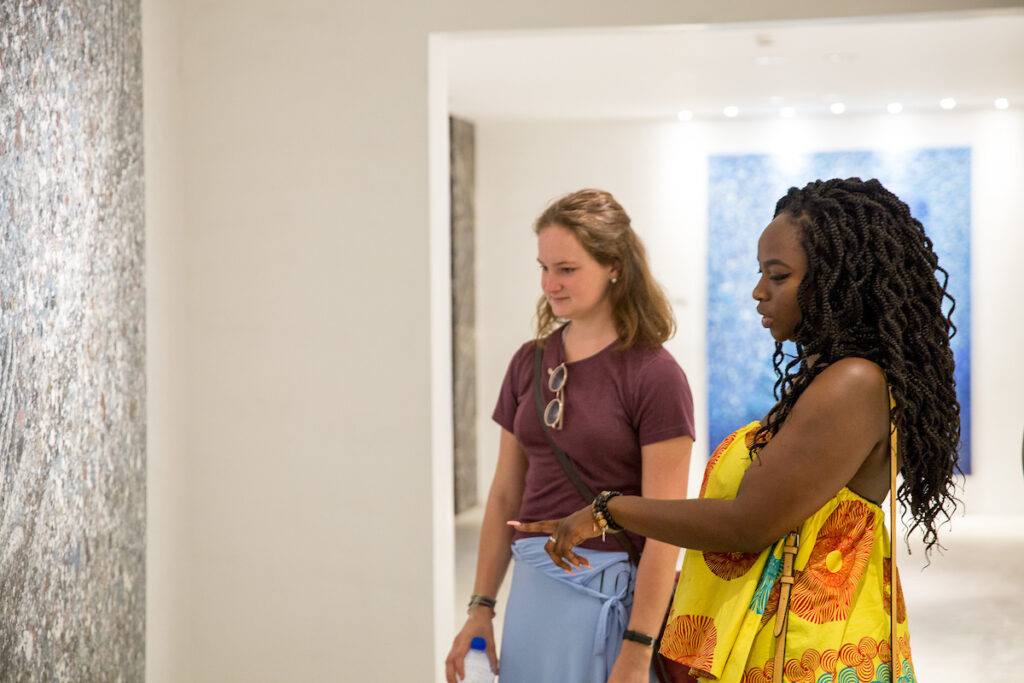
At the Diversity Abroad awards ceremony you said you hope African countries and programs will “continue to be recognized for the work we do in improving notions of diversity and inclusion.” Could you talk more about what you mean by that?
A lot of times the approach to diversity and inclusion is very western, addressing issues that concern America and Europe. My hope is this award sheds light on how Africa is influenced by this work. Sometimes it’s tied to the larger understanding of how the continent is perceived. There is a perception that Africa is a country. When something happens in one African country the average American thinks the whole continent is on fire.
There is a history of seeing Africa in these ways. World maps scale down Africa to be around the size of the U.S., which makes no sense. Just the Democratic Republic of Congo is half the size of western Europe in total. There is a need to work against these notions.
